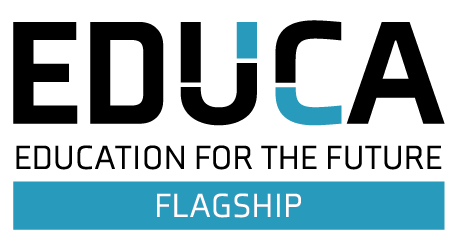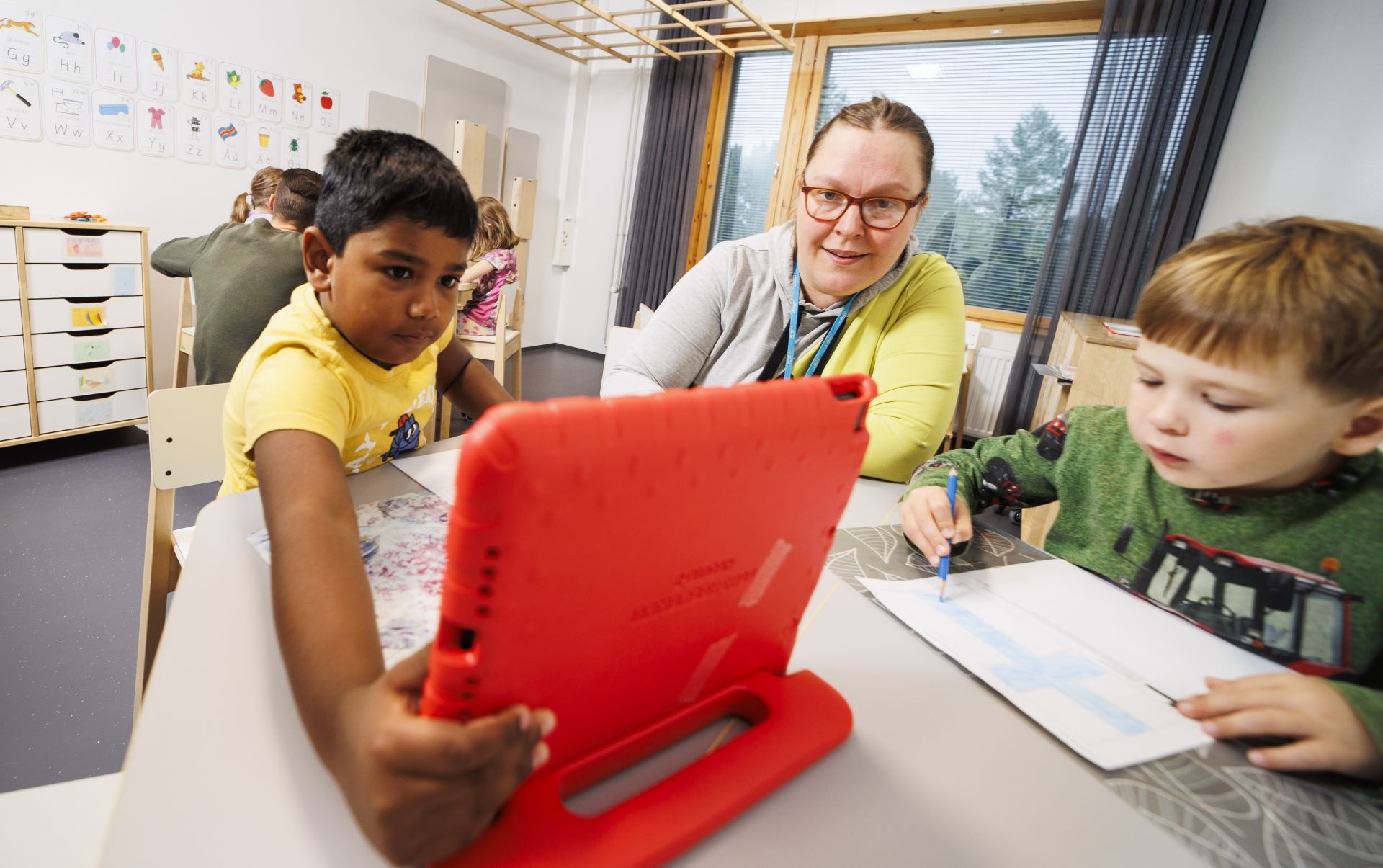Digitalisation of teaching progresses at different paces in Finnish schools
Press release by the Finnish National Agency for Education 26.5.2025 (translation from Finnish):
The basic education curriculum requires schools to promote pupils' digital literacy and teach them how to use the new technologies needed in a digitalising society. Using digital devices and services for learning is also a right for every pupil.
Improving the quality of teaching and learning outcomes requires the pedagogically appropriate use of digital devices and services. However, many studies highlight differences between schools in terms of digitalisation of teaching and between pupils in terms of learning outcomes.
- The research review confirms the picture we have at the Finnish National Agency for Education about the progress of digitalisation in schools. We can no longer talk about pioneering schools, because every education provider should ensure that pupils have the skills they need to study and function in a digitalised society," says Miia Jaatinen, Senior Advisor at the Finnish National Agency for Education.
Is the digital literacy of Finnish pupils an illusion?
In the research review, researchers from the University of Jyväskylä's EDUCA - Education for the Future Flagship review studies conducted in Finland over the past 15 years that have examined the effects of digitalisation on students' learning, skills and well-being, and teachers' work, skills and well-being. The review focuses on primary education, where the most research is available. The review did not look at the use of digital devices in leisure time.
Finnish young people's skills are at a relatively high level internationally in areas such as multiliteracy, which in this context means being able to retrieve, fluently read, understand, interpret, produce and evaluate digital texts. In particular, the ICILS 2023 survey on multiliteracy and computational thinking shows that the trend is however downwards and that the gap in skills between individuals is widening.
The use of digital devices for learning purposes in Finnish schools is limited and one-sided, and more widespread integration into activating pedagogies is scarce in the light of research evidence.
- It seems that the progress of digitalisation in schools has been uneven. However, recent studies have shown that schools' ability to use technology in education has also improved in many respects, and in particular the digital learning materials and applications available have become more diverse," says Professor Päivi Häkkinen from the Finnish Institute for Educational Research at the University of Jyväskylä.
Teachers' digital skills are crucial
The review shows that while the digital infrastructure in schools has progressed, teachers' digital pedagogical skills have made more modest progress. This puts pupils at a disadvantage. All pupils should be given equal opportunities to develop digital skills and use technology to support their learning.
Thus, the review's recommendations for development focus on teacher training, among other things.
- It is important to consider how basic and in-service teacher education can promote the ability to use digital technology in a learner-centred and pedagogically appropriate way, says Associate Professor Piia Näykki from the Teacher Education Department at the University of Jyväskylä.
- Especially now that AI is coming and has come to schools, it is even more important to ensure that students are more equal and that everyone gets the digital skills they need from school. Digitalisation has led to increased learning opportunities and changing skills needs. The need to renew the current basic education curriculum has been recognised," says Päivi Leppänen, Counsellor of Education at the Finnish National Agency for Education.
Cooperation between different actors is needed
More widespread use of digital technologies to support teaching and learning would also require more systematic cooperation between different actors, according to the researchers who wrote the research review.
- A combination of different expertise is needed to continuously develop pedagogical practices and applications. In developing digital devices and services, it is important to consider human factors in addition to technological and economic ones. This is why more research is needed on issues such as the impact of digital devices on the learning and teaching experience of learners and teachers," says Professor Häkkinen.
The research review has been commissioned by the Finnish National Board of Education as part of the digitalisation framework for early childhood education, pre-primary and primary education and liberal adult education, which aims to form a common direction for the development of digitalisation and to create a functional and comprehensive knowledge base and analytics to support decision-making. It will also promote equal access to digital learning and strengthen digital literacy.
The research review was carried out by the University of Jyväskylä as part of the EDUCA - Education for the Future Flagship research consortium funded by the Academy of Finland, which aims to promote the development of education through research-based knowledge and support knowledge-based management. The multidisciplinary competence cluster includes research on how digital technology transforms teaching and learning.


